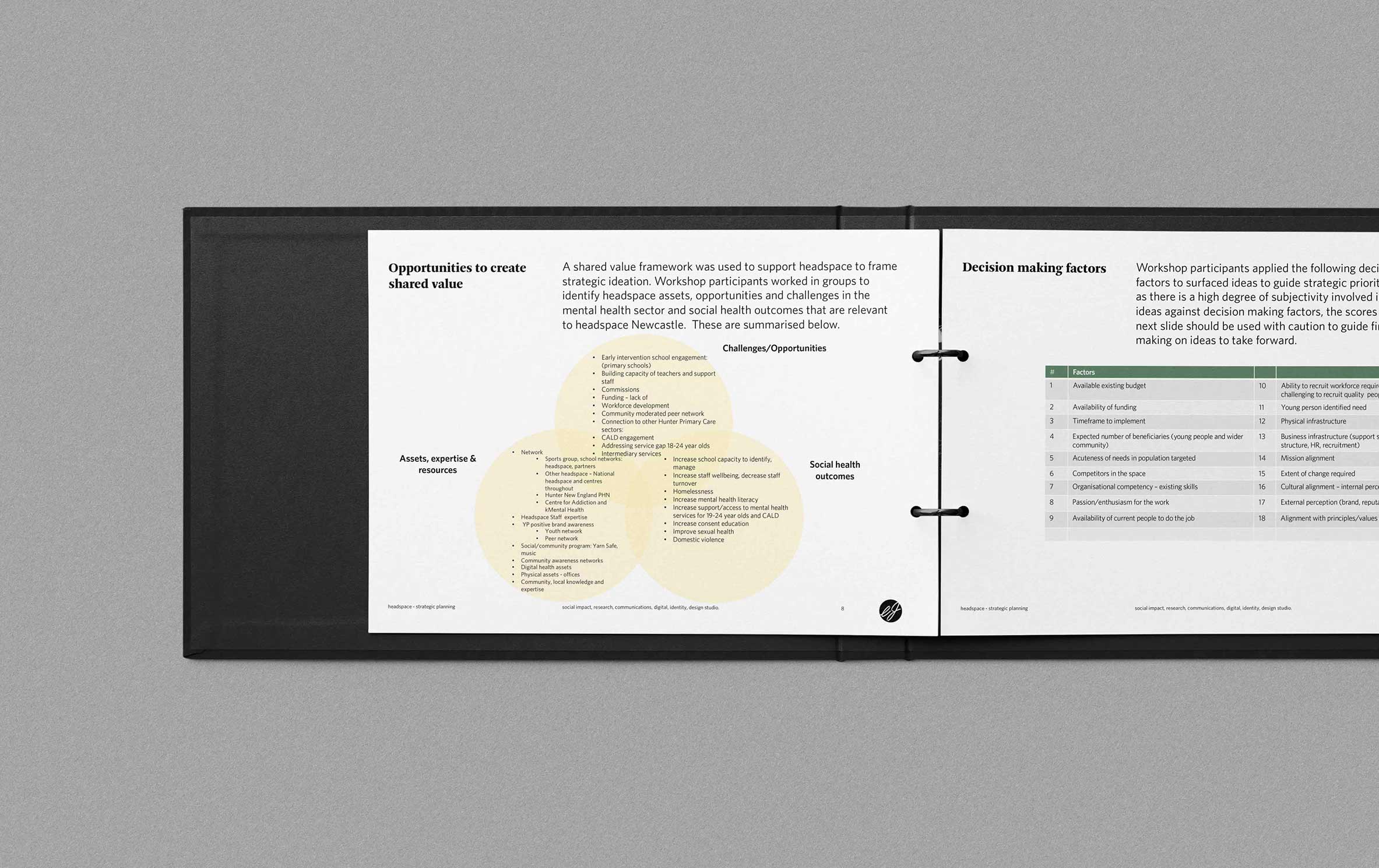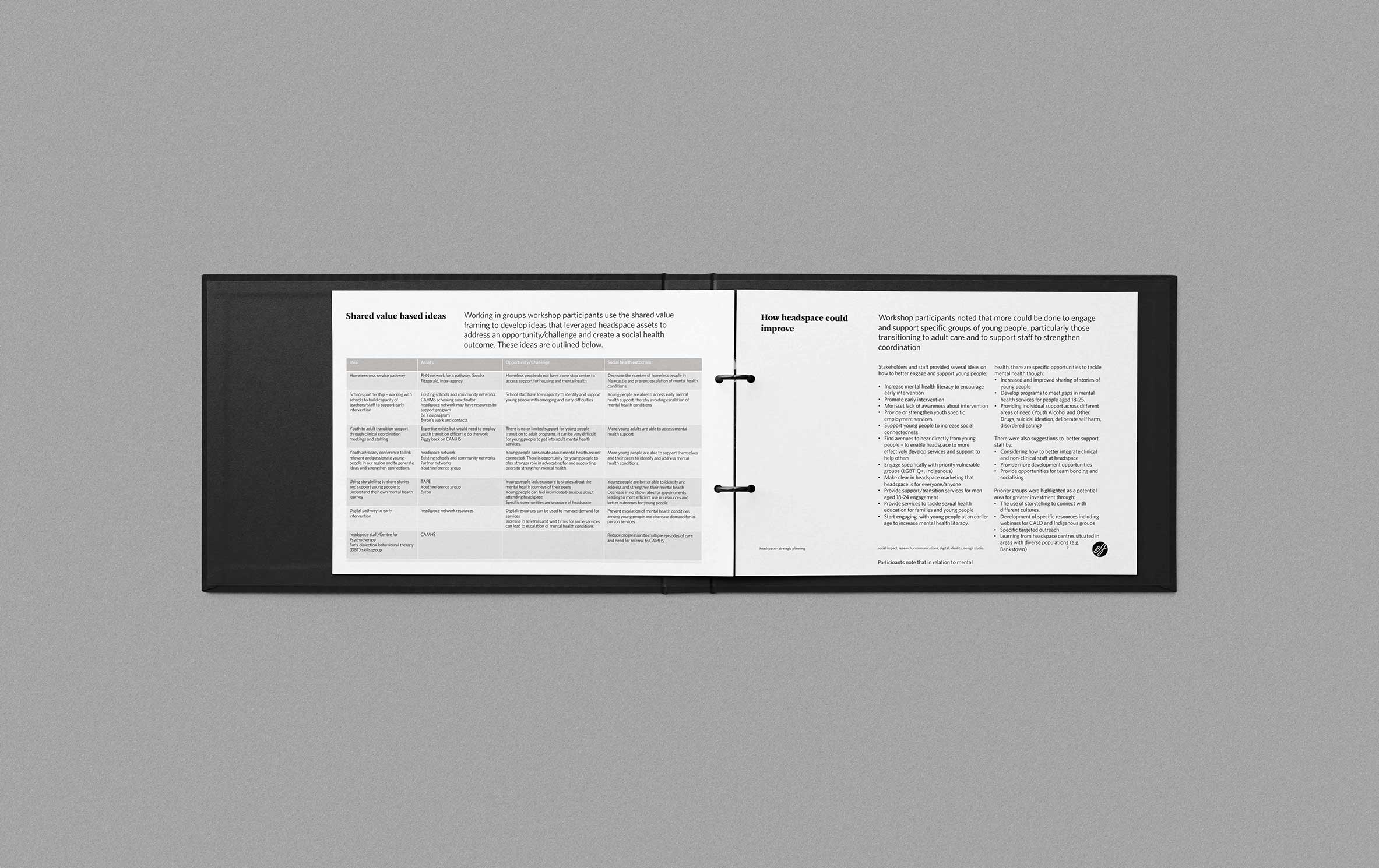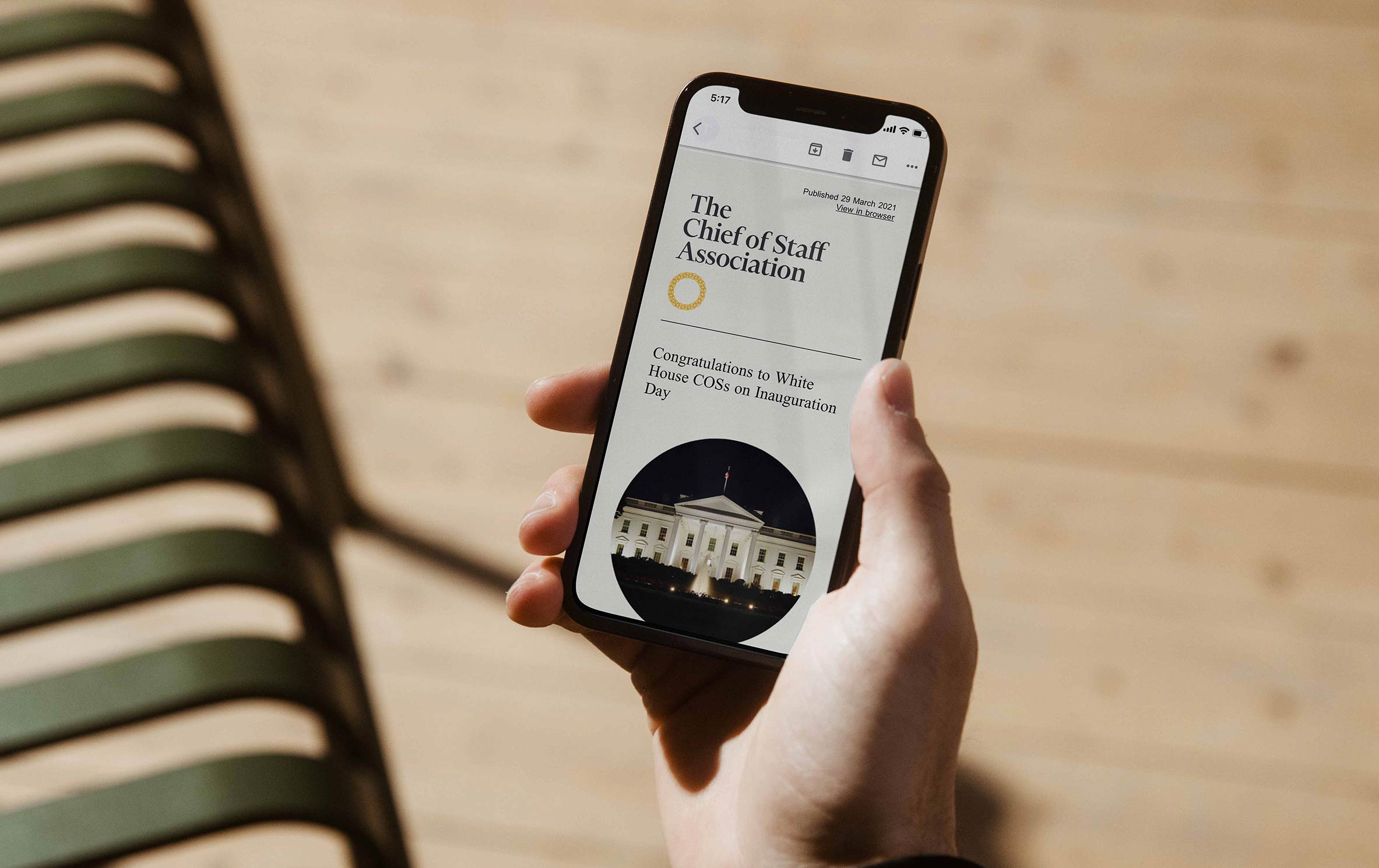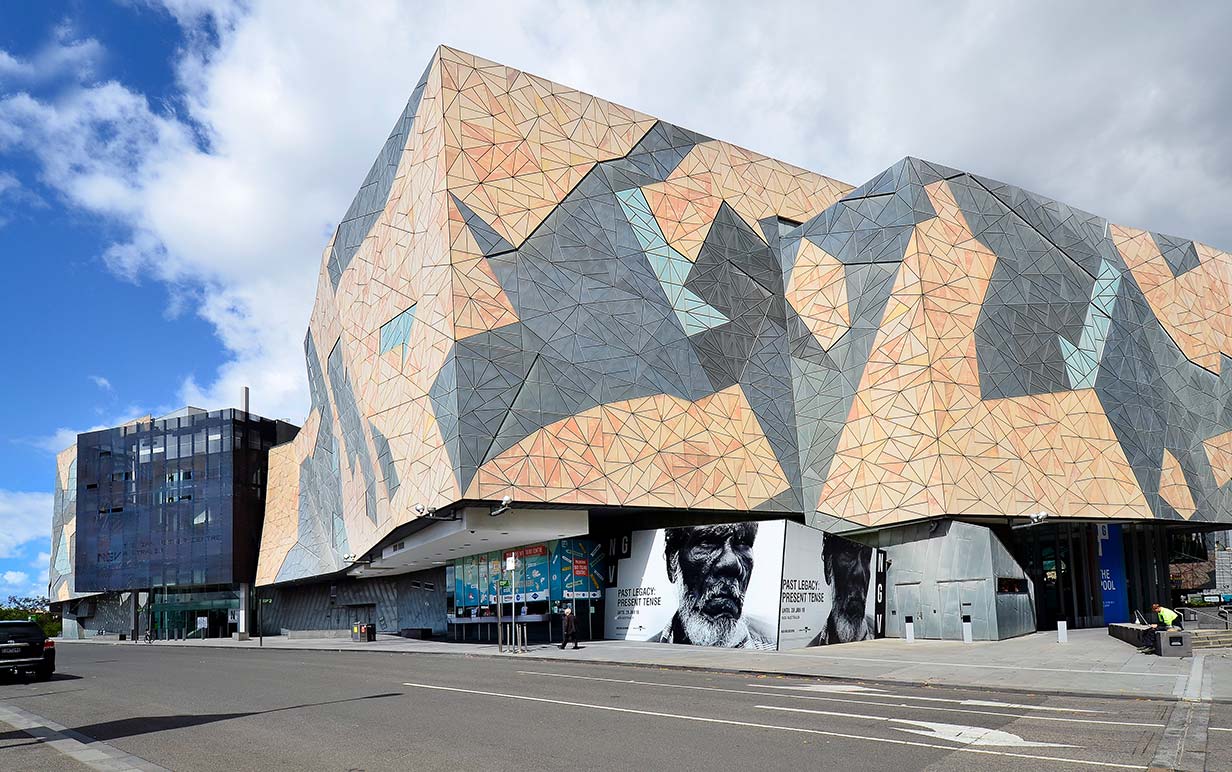Guiding a youth mental health organisation on their strategic planning so they can better respond to the needs of young people.
Learn more about this project
Challenge
headspace Newcastle provides mental health information and support to young people in the Newcastle, Lake Macquarie and Port Stephens regions. Drawing on operational and market insights, headspace sought to explore how its strategy should evolve, particularly in response to the pandemic.
Response
headspace Newcastle commissioned Ellis Jones to guide strategic planning as it responded to the needs of young people.
As part of headspace Newcastle’s strategic planning day, Ellis Jones coordinated an interactive workshop that involved headspace Newcastle’s staff and key stakeholders (such as mental health experts and youth reference groups). Our team was called on to:
- Analyse and extract insights from quantitative and qualitative research reporting to define community mental health needs and headspace Newcastle’s market context.
- Engage headspace Newcastle staff and stakeholders in a strategic planning process and cultivate an environment where aspirations, learnings, insights and frustrations could be openly discussed.
- Identify opportunities to better integrate the voice of young people in headspace Newcastle’s ongoing organisational and strategic planning.
- Design and facilitate workshops to determine where headspace Newcastle was best placed to address the needs of young people and their communities, while addressing challenges such as diverse settings, culture and systems. To do so, a shared value framing was used.
Outcome
To guide headspace Newcastle’s strategic plan development, Ellis Jones produced a report which shared key insights from the strategic planning day and artefacts from the design-led process.
Actionable insights included:
- Reaching a wider range of young people in Newcastle and working with partners to engage these groups.
- Engaging more specific groups of young people (particularly those transitioning to adult care)
- Supporting staff to strengthen coordination.
The shared value framing activity surfaced opportunities that could be sustainably addressed over time and defined how each idea could address an opportunity/challenge in the mental health sector as well as create a social health outcome.
Decision making factors were also defined to help guide strategic prioritisation.
This report has been endorsed and presented to headspace Newcastle employees so that findings can be implemented across the organisation.








